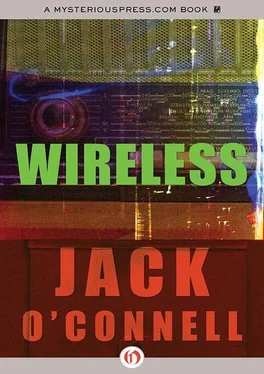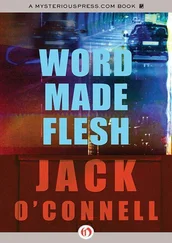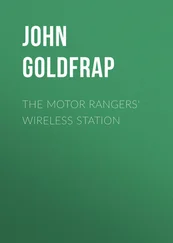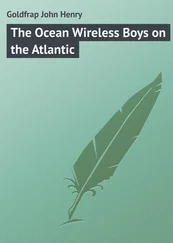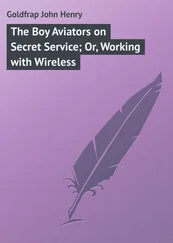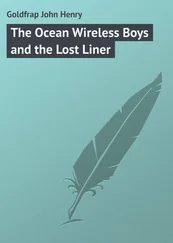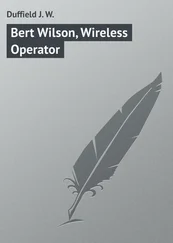“You’ve seen the whole parade, okay? You started out a young man, solo, maybe even before you met Olga. You started small-time — prank stuff. Maybe you vandalized a small transmitter with a baseball bat. Maybe you knocked out power in the basement of a station building. But the years went by and things got more and more complicated. Technology took the express train, right? And you kept up. You did the work. You kept pace, got to know the new equipment as it came along. Then you start actually broad-casting yourself. Ham. C.B. You get more refined. You get a reputation. You’re knocking the official stuff off the air more and more often. And you even pick up an M.O. — you’re the sound-effects guy . That’s your label, your tag. You knock their signals down with a Spike Jones routine, shotgun bangs, raspberries, Chinese gongs. The younger people love it. Becomes a cult kind of thing. More kids get involved, they seek you out somehow, there’s a network evolving, a way for you to stay safe but branch out, form a little rebel community. And the beauty is, and this is always the beauty, right? The beauty is it’s all done in deep cover. On the surface, all of you guys carry on quote, normal, unquote, lives, right? Anyone can be a secret jammer. Your milkman, your kid’s kindergarten teacher, the candy store owner. Like the gays way back. Like the drug people sometimes. The communists after World War II. It’s a Jekyll-Hyde kind of thing. And that’s what makes it exciting. Am I right?”
Wallace just stares at him.
Speer holds his hands out palms-up.
“Now, I’m not bargain hunting here. I’m ready to be prudent but fair. Basically, as I see it, the more you tell me, the more insulated I can make you. At some point I could even see a way for this to not only secure you from any personal harm but, in fact, profit you to some degree. There’s no reason we can’t all benefit from this relationship. Believe me, no one wants a smooth, quiet ride more than I do.”
Olga and Wallace look at each other. She reaches over and takes his hand in both of hers.
It’s Wallace’s turn to start weeping. His eyes moisten, salt up, start to drip.
Speer takes a cardboard notebook from the breast pocket of his coat. It’s got a spiral wire binding across the top, like a mini dictation pad. He thumb-clicks a long ballpoint and scribbles something. He can’t manage to suppress the smugness that’s spreading on his face.
He moves over, sits down next to Wallace on the couch, and says, “Who knocked QSG off the air tonight?”
But he’s tried to reel his fish just a bit too early. Wallace balls his fists and presses them to his eyes. When he takes them away, desperation has been replaced by outrage. His tongue comes stuttering out of his mouth and licks across his bottom lip, and though his voice has a quaking rhythm, his words are low and clear.
He says, “Up yours, pigboy.”
There’s a classic paralyzed second, then Speer explodes, grabs Wallace by his shirtfront, and yanks him off the couch and onto the floor. He removes a leather blackjack from his jacket pocket, takes a step toward Wallace, stops, blows air out his nose, reaches back without looking, and backhands Olga in the head.
She’s knocked sideways on the couch and Wallace starts to yell. But it’s too late. Speer has turned full-body to face the woman. She’s stunned, sprawled sideways like a small side of pink beef on a cutting table. Speer goes to work with an oldtime bell-ringing motion, right arm pulling downward in alternating cross-arcs. The slap-sound of lead-weighted leather impacting against Olga’s body is horrible: first a high, cracking snap into skin, then a more dulled, unreverberating thud into bone.
All the screams come from Wallace. Olga is hunched into a shocked silence, her face pushed into the cushion. Wallace has crawled to Speer’s feet and latched onto his legs, trying to pull him away. But it’s a futile move. Speer is pumped and ready to do anything. A line of blood has started to flow from Olga’s visible ear.
Speer interrupts the whipping to bring up a leg and stomp at Wallace with his wing tips. He lands two heel blows dead center to the dwarf’s chest, follows them up with a kick that lifts and sails Wallace back to the fireplace.
The dwarf lands on his back, his vision blurring, trying to suck air. And suddenly Speer is above him, holding a limp, unconscious Olga around the waist like a doll.
Speer’s teeth are bared and he spits on Wallace. He’s on the verge of hyperventilating. When his voice comes it’s more a rasp than a scream. He says, “You fuck, look what you’ve done.”
Then he drops Olga to the floor and grabs hold of her dangling arm by the wrist. He stares, unblinking, at Wallace, and begins to turn the arm until a snapping sound fills up the space between the two men. And a random, undersized bone rips loose from its connections and bursts through the skin.
For close to a century, the P&C Abattoir was a functioning slaughterhouse run by a French family named Perec. It’s been shut down for well over two decades and there’s probably no one left in the Park who can even remember the last Perec, the small bachelor with the bushy crown of silver hair and the pencil mustache, who was called simply “the Frenchman” and wore the same brown trench coat to work through all the seasons and carried his lunch of an onion and a wedge of cheese in a crumpled white pastry bag.
Now everyone on West Street just calls the two-story brick mill house “the abattoir,” as if this were a generic name for all empty brick arcs, or as if the sound of the word implied something more exotic and maybe sexual, a Latino dream of Gallic brothels, the floors stained forever with perfumes and talc rather than fifty years’ worth of steer blood and the sand of band-sawed bones.
Hannah has her gun out, gripped in her right hand, held down by her thigh. She approaches the building by the rear alley and comes up the fire escape to the second-floor entrance. The old steel door is ajar the way Iguaran promised it would be.
She steps into a loft-office area, a place that once processed paperwork, filled orders for a gross of steaks, a thousand center-cut roasts, ten thousand pounds of ground chuck. The office is empty now except for a large gunmetal desk pushed against a wall and missing all its drawers. There’s a sunfaded, oversized calendar still hanging from an opposite wall, nailed into the bricks with a large rusted spike and announcing, perpetually, that it’s May 1972.
Moving across the loft to a wrought-iron balcony, Hannah looks down to see three figures clustered in a far corner below. The only light is a white beam that fans out to shine on a far wall. Stray wisps of smoke drift through the light. There’s a familiar ticking sound echoing through the brick cavern and it’s a second before Hannah realizes it’s the sound of a movie projector. She pivots and is able to make out the images playing against the bricks — a grainy shot of rats scrambling out of the hold of a ship, first one, then a few, then a swarm, crawling over each other, seemingly frantic. It’s a film she’s seen before, a silent black-and-white classic— Nosferatu . German, she remembers. Around 1922, she thinks. The first adaptation of Dracula .
She moves to the narrow iron stairway and descends into what was once the largest meat processing plant in town. She can recall walking with her father once, just before the abattoir closed. They passed one of the front loading ports just as a delivery truck had pulled away and the huge metal rolldown door was still open. It was late fall and the air held a hard chill. White steam hung around her father’s mouth as he spoke to her, holding her hand, keeping her close. But the talk ceased as they passed the loading door and both took in the scene: a man in a heavy-looking white smock, stained everywhere with rust-colored blotches, a green rubber garden hose held with both hands, a jet of water spurting from the nozzle down onto the concrete floor. The man was hosing away steer blood, and the water from the hose was hot, and as it mixed with the cold November air, gusts of steam flew everywhere, making vision into some hyper-real dream, some trace memory that seemed to be climbing back to the here and now. The concrete floor was sloped slightly, like a movie theater, and there was a round, grate-covered drain set into the lowest point and the blood and water eased into an ongoing whirlpool around the edge of the drain. And beyond the drain, where the flooring rose back to level, there were racks of metal frames fitted with thick steel hooks, huge, mutant fishing hooks out of your most troubling nightmares. And, of course, hanging from these industrial hooks were sides of beef, almost-whole steers, headless and hideless but with legs intact, the run of their powerful bodies completely evident, totally recognizable for what they once were and looking enormous. They hung in a uniform row, like pressed suits in a walk-in closet.
Читать дальше
